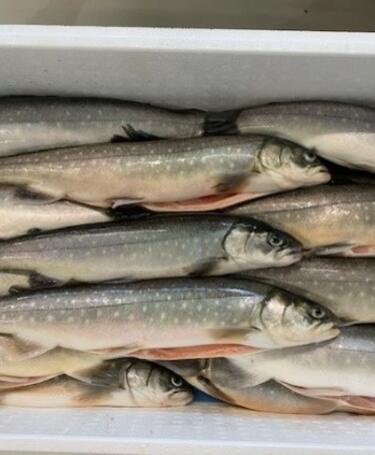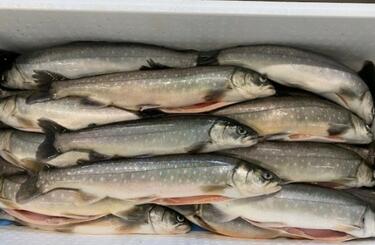
Norwegian fish farmers aim high with the Arctic char

How certification from the Aquaculture Stewardship Council and other organisations will help build on existing food safety standards.
In the past decade, increasing numbers of consumers across Europe have become focused on healthy and ethical eating – a trend that has benefited a number of categories in the food sector.
One such category is fish, which is in robust shape in the UK, despite the twin challenges of Covid-19 and Brexit. (According to a 2021 market report, the UK market for fish was on track to grow by almost 1% by the end of last year.)
While ‘fishing wars’ between the UK and France have had a particularly high profile in recent months, producers in another European country, Norway, are looking to benefit from this growth.
Fish-farm businesses in Norway claim to have a long tradition of high standards and innovation – and one species that could help spearhead a growth in the country’s exports is the Arctic char, a freshwater fish with a salmon-like taste.
For small, land-based producers like us, the process of certification should be straightforward, as – with the exception of feed and logistics – we control every aspect within a single building.
In a process known as aquaculture, or aquafarming, Arctic char are farmed on land in large oval ‘raceway’ tanks, where they do not interfere with natural marine habitats. The Norwegian market for the fish is growing, while interest from other Western countries, including the UK, is also on the rise.
Henrik Røe, co-founder of Trondheim-based Norwegian Fish Farms (NFF), says restaurant chefs are particularly interested in Arctic char, as they look for a fish that tastes good and meets the ethical demands of their customers.
International standards
Røe argues that meeting internationally recognised standards and certifications is important in building awareness of the environmental and ethical benefits of the species. “Consumers are more educated and demand higher standards of sustainable farming than they did even a few years ago. Animal welfare is central to our production of a sustainable source of protein.”
Stian Aspaas, CEO of NFF, says the company already meets Norwegian food safety standards, which allows it to access most global markets. However, he sees the benefit of achieving further certifications, such as those from the Aquaculture Stewardship Council (ASC), the Marine Stewardship Council, and Best Aquaculture Practices. These will help NFF deliver straightforward, meaningful statements to customers about production methods and the company’s environmental, social and governance (ESG) goals.
Targeting ASC certification
At least six governmental agencies oversee fish production standards in Norway, including Mattilsynet (FDA), which controls fish welfare, product quality and consumer safety; Statsforvalteren (state administrator), overseeing environmental impacts such as effluents, chemical use, pollution and ecological effects; and NVE (directorate for water resources and energy), which regulates water usage and energy consumption.
“Norwegian regulators hold us to high standards already,” says Aspass. “However, the large amount of documentation [they require] is difficult to sum up in an easy-to-understand – and trust – package. This is where standards help, by communicating to consumers that we are responsible and efficient farmers of this fish.”
NFF is now targeting the ASC certification for the production of freshwater trout, which it considers the most important additional standard for land-based aquaculture farms wanting to communicate their commitment to ESG goals. As it works towards accreditation, the company has found that compliance with existing Norwegian standards already covers many of the requirements.
“As we are highly regulated, we filed the paperwork for our ASC with only minor alterations to the manuals and standards we already have in place for local regulations,” says Aspass. “We expect our audit for ASC to come through in March 2022 without major problems. For small, land-based producers like us the process of certification should be straightforward, as – with the exception of feed and logistics – we control every aspect within a single building.”
Aspass believes there is also an opportunity to communicate more clearly to the public about how the aquaculture sector works. “ASC, for example, demands regular stakeholder meetings with the local community, which helps the industry’s all-round reputation.”
Find out the wider business benefits of food safety certification.